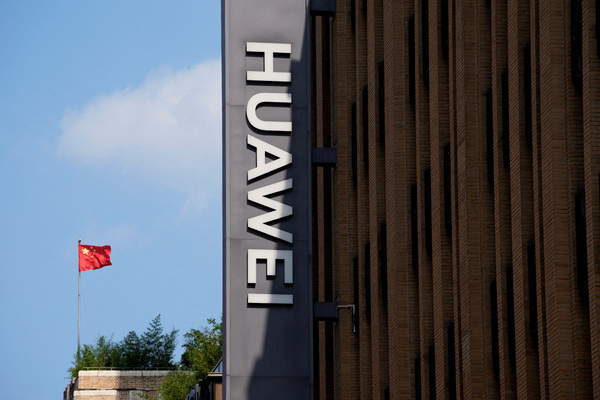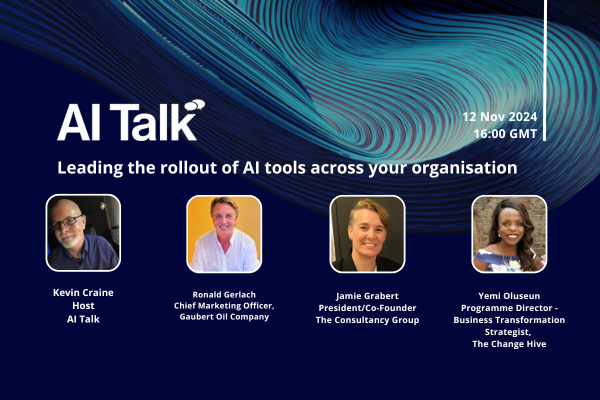Is AI fatigue already here?
Cutting through the AI hype with five innovations from GITEX 2024 that will transform your business

If it feels like artificial intelligence (AI) is everywhere nowadays, it’s because it is. The non-stop discussions and excitement about AI have hit an all-time high, and for good reason – it’s influencing almost every industry.
From self-driving cars to personalised shopping experiences, AI is hailed as the future innovation. However, with its omnipresence in tech discussions, conferences and corporate strategies, a phenomenon known as “AI fatigue” is setting in. People are growing weary of the hype. They crave tangible applications over theoretical promises.
According to a 2024 survey by Gartner, 55 per cent of organisations are exploring AI. But only a fraction have moved beyond pilot stages. “We’ve reached a point where talking about AI’s potential isn’t enough. Businesses need real, implementable solutions,” says Satya Nadella, CEO of Microsoft.
This sentiment was palpable at GITEX Global 2024, one of Dubai’s largest annual tech exhibitions. Amid the sea of AI chatter, five real-world use-cases stood out – practical applications being developed by the world’s biggest companies, where AI is set to reign supreme by 2025.
The five key AI-related insights from GITEX 2024
While there is a myriad of industries where AI has become king, some major companies still try to prioritise certain segments over others. Cyber-security, customer experience, healthcare diagnostics, infrastructure management and supply chain optimisation stand out in particular.
Here are the in-depth aspects of each of the insights:
1. AI-powered cyber-security
Cyber-threats are becoming increasingly sophisticated, and traditional cyber-security measures struggle to keep pace. According to Business Standard, cyber-crime is projected to cost $10.5 trillion annually by 2025.
AI-powered cyber-security tools have emerged as a critical defence mechanism capable of predicting, detecting and neutralising threats in real time. By 2025, AI-driven cyber-security will be essential. According to IDC, an estimated 80 per cent of new digital business applications require it.
Companies such as Darktrace and FireEye showcased AI systems that use machine learning (ML) to understand normal network behaviours and identify anomalies indicative of cyber-attacks. These systems can adapt to new threats without explicit programming. This makes them highly effective against zero-day exploits and advanced persistent threats (APTs).
PayPal, for instance, uses AI algorithms to monitor its 286 million active accounts, flagging suspicious transactions within seconds. Its AI system analyses patterns across vast amounts of transaction data to detect fraudulent activities that traditional systems might miss.
AI is there to keep cyber-threats at bay. There is a constant arms race between cyber-criminals and cyber-security experts trying to minimise the human factor and make sure data is well-protected.
2. AI-powered personalised customer experience
Retail and e-commerce giants are leveraging AI to create hyper-personalised customer journeys. AI algorithms analyse customer data to offer tailored product recommendations and dynamic pricing.
Customer service chatbots have been around for a while, but they’re getting significantly smarter. Companies showcased how AI moves beyond basic question-and-answer bots to provide hyper-personalised support. For example, Swedbank’s AI chatbot Nina handles more than 40,000 conversations monthly. And the tech is getting even better at recognising nuanced customer requests and providing instant feedback.
The trend is not just in chat, though. It’s also about deepening customer understanding and shaping how businesses engage in the years ahead. Nothing can reveal more about customer behaviour than the little breadcrumbs of data they leave behind. AI can pick up on those and turn them into an unbeatable customer experience.
3. AI in healthcare diagnostics
AI-enabled diagnostic tools have put the healthcare sector on the cusp of transformation. Companies such as Siemens Healthineers and Philips have demonstrated AI systems capable of analysing medical images such as X-rays, MRIs and CT scans with unprecedented speed and accuracy. These AI algorithms can detect tumours, fractures, infections and other anomalies the human eye might miss. For instance, Zebra Medical Vision presented AI tools that can read scans and flag urgent cases to radiologists, expediting critical patient care.
These tools analyse medical images and patient data to assist doctors in making informed decisions. A study in The Lancet Digital Health journal found that AI diagnostic tools could improve diagnostic accuracy by up to 15 per cent. Besides, AI applications in healthcare could save the global healthcare economy up to $150 billion annually by 2026 through improved efficiency and reduced errors.
AI can improve everything that comes with analytics and diagnostics. Its ability to deal with vast amounts of raw data will go a long way in healthcare and other industries.
4. Smart cities and infrastructure management
According to Frost & Sullivan, smart cities will invest over $2 trillion in AI by 2025 to improve urban living standards. Urbanisation demands smarter infrastructure. AI technologies are being deployed to optimise traffic flow, manage energy consumption and enhance public safety.
NVIDIA revealed its Metropolis platform, which uses AI and deep learning to analyse data from traffic cameras and sensors. This enables real-time traffic management, reducing congestion and optimising traffic signal timings. Companies such as Huawei demonstrated AI-powered smart transportation systems that can predict traffic patterns and provide dynamic route planning for public transportation.
Without a doubt, next year we will see some major projects in AI as a central component in urban planning and infrastructure management.
5. AI-driven supply chain optimisation
Gartner predicts that by 2025, AI will be a core component in 50 per cent of supply chain technology solutions. AI solutions are helping businesses predict demand, manage inventory and optimise logistics.
Companies such as IBM and Microsoft showcased AI platforms at GITEX that provide real-time, end-to-end visibility into the supply chain. These systems collect data from suppliers, manufacturers, distributors and retailers to view the supply network comprehensively.
AI algorithms analyse historical data, market trends and external factors (such as weather patterns or geopolitical events) to predict demand accurately. This helps businesses adjust production schedules, manage inventory levels and avoid overstocking or stockouts.
AI in the real world
While AI fatigue might be a growing sentiment, the key takeaways from GITEX 2024 indicate that AI’s real-world applications are far from exhausted. The focus is shifting from discussing AI’s potential to implementing solutions that offer tangible benefits.
For businesses, the message is clear – it’s time to move beyond the hype and invest in AI applications that drive value. Whether it’s enhancing cyber-security, personalising customer experiences, revolutionising healthcare diagnostics, building smart cities or optimising supply chains, AI is set to be the lynchpin by 2025.
Next steps for your business
- Assess readiness. Evaluate your organisation’s capabilities and readiness to adopt AI solutions.
- Strategic investment. Focus on AI applications that align with your business goals and offer measurable ROI.
- Collaborate and learn. Engage with technology partners and stay updated on industry developments to leverage AI effectively.
As Sundar Pichai, CEO of Alphabet Inc, says, “AI is one of the most important things humanity is working on. It’s more profound than fire or electricity.” The onus is on businesses to harness this profound technology, and transition from fatigue to strategic action.
If you’d like to learn more about how AI can benefit businesses and explore potential applications, I invite you to contact me here.

Pawel Satalecki, SVP of Business Development, Avenga

Business Reporter Team
Most Viewed
Winston House, 3rd Floor, Units 306-309, 2-4 Dollis Park, London, N3 1HF
23-29 Hendon Lane, London, N3 1RT
020 8349 4363
© 2024, Lyonsdown Limited. Business Reporter® is a registered trademark of Lyonsdown Ltd. VAT registration number: 830519543





